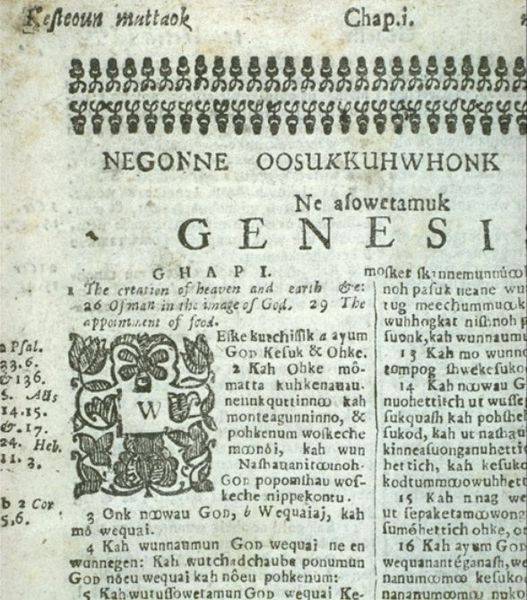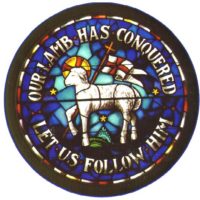ROXBURY, MA – Thousands of Bibles have been printed in America, but you probably know little about the very first Bible printed here? Read on and be amazed.

The Bible Is a Missionary’s Main Tool
This fact should not be a surprise. The Bible says that “Faith comes by hearing, and hearing by the Word of God.” (Romans 10:17) So it’s self evident that people cannot call upon the name of the Lord and believe in Him unless they have heard His Good News. (Romans 10:14)
Bible Translation is at the Heart of Missions Work
Gutenberg printed the first Bible in a language other than Latin or the original text languages. Published in Germany for Germans, that Bible would have little impact for those of us who are literate in English. The 1560 Geneva Bible is considered “one of the most historically significant translations of the Bible in English.”
We tend to forget that our Bibles in the English language are translations. Literally, dozens of missions organizations are involved in Bible translation work, so we tend to think in terms of the need to translate and publish Bibles in the more than 7,100 other languages – and even more dialects.
America Was Once a Mission Field
Europeans came to America for many different reasons. Some were seeking fortune. Others were seeking freedom. Chief among the freedoms sought was the freedom to worship where the government did not impose a form of belief or practice on its citizens. Pastors and Bible teachers were, therefore, necessary to ensure that sound Bible teaching was available to the colonizers, some of whom still needed to be converted.
According to the Grace Sola Foundation,
“When the Puritans came to the New World, they had two goals. One was to form a pure church by separating themselves from the perceived corruptions of the English Church. The other was to bring the Gospel to the native inhabitants.”
America Needed a New Bible Translation
It’s not that America needed a new English translation. They were available cheaply and in abundance from European publishers.
It was the countless number of native people in America who had never heard of Jesus or the Bible. Dedicated Christians realized that a translation in the native Algonquin tongue was necessary.
Having only a spoken language, someone would have to make a commitment to learn the language, create an alphabet, teach the natives how to read their own language and provide copies of God’s Word for them.
That man was John Eliot. Assisted by John Sassamon, a native Algonquin, Eliot spent 10 years of intensive labor working among the natives and, all the while, working on translating a version of the Bible into their language. On one occasion, Eliot noted that he had
“Visited the Indians for the past four days. The weather was cold and snowy. Was wet for the entire time, but that is a small price to pay for the privilege of taking the Gospel to them.”
In 1661 he published the Algonquin New Testament.
Two years later, with the help of a second printer, a new moveable type press, and a supply of cotton paper from the British Society for the Propagation of the Gospel in New England, he had succeeded in translating and publishing 1,000 copies of the entire translated Bible.
An unofficial census taken in 1674 counted 4,000 “praying Indians” who were no longer counted as savages.
Looking back on his work, John Eliot said, “Prayer and pains through faith in Christ Jesus will accomplish anything.”
Eliot’s work was so admired that, two centuries later, noted author Nathaniel Hawthorn paid tribute to him and his work, saying, “It is good for the world that such a man has lived.”
A copy of the Eliot Indian Bible is on display at the Museum of the Bible in Washington, DC.
Read more news on the America and Bible Translation on Missions Box.
Sources:
- Great Site, The 1663 Eliot Bible: The First Bible Printed in America
- Great Site, English Bible History – John Eliot
- Sola Group, John Eliot and America’s First Bible
- History of Information, John Eliot Issues First Complete Bible Published in the Western Hemisphere
- Theology Today, The Geneva Bible of 1560
- Ethnologue. Languages of the World




